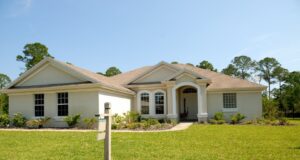Institute Supports White House Effort to Advance Resilience and the Building Codes
Washington, D.C. – (RealEstateRama) — The National Institute of Building Sciences is proud to support the White House in its efforts to advance the nation’s resilience through the application of codes and standards.
The White House convened the White House Conference on Resilient Building Codes today, May 10, 2016, to bring increased attention to the important role of codes and standards in achieving a resilient nation. The Institute served as a liaison between the White House and the building industry leading up to the event. Institute Presidential Advisor Ryan M. Colker, J.D., moderated a panel of codes and standards developers.
The U.S. Congress established the National Institute of Building Sciences in 1974 to serve as an authoritative source for both the public and private sectors to create a safe, healthy built environment across the United States. More than forty years later, the Institute has tackled some of the most serious concerns in the built environment, from asbestos, radon gas and lead paint to rehabilitation of existing housing, indoor air quality and energy conservation.
Since its beginnings, the Institute has worked with the codes and standards organizations to address cutting-edge building sciences-related research, addressing everything from accessibility for persons with disabilities to building commissioning and rehabilitation guidelines. Throughout its history, the Institute’s Building Seismic Safety Council (BSSC) has worked with the Federal Emergency Management Agency (FEMA) to help bring the latest research and findings in seismic science to the codes and standards process by developing the National Earthquake Hazards Reduction Program (NEHRP) Recommended Provisions for the Development of Seismic Regulations for New Buildings. The BSSC continues to perform this important function today.
The Institute is proud to have participated in the White House Conference on Resilient Building Codes. As the White House and members of the building industry bring increased attention to the important role of codes and standards in achieving resilience, the Institute will continue its efforts to advance resilience through the following activities:
- Working through its relevant councils, the Institute will convene stakeholders to develop findings and recommendations on “Advancing Long-Term Performance in Codes, Standards and Other Policies.” To date, codes and standards have focused on the criteria necessary to provide short-term protection and ease of evacuation in the face of a hazard event. Yet, resilience requires a focus on the long-term viability of structures to support social and economic viability of an effected community. This effort will identify a potential path forward in addressing this gap.
- The Institute will continue efforts started in 2015, based on a Consultative Council recommendation, to bring together the climate science and building science communities to support utilization of climate science in the planning, design, construction and operations process. This dialogue will focus on identification of appropriate data for decision making.
- Building off its 2005 “Mitigation Saves” report on the value of FEMA investing in mitigation, the Institute’s Multihazard Mitigation Council is undertaking an enhanced study to identify the benefits of both public and private investment in mitigation. The International Code Council (ICC) and Insurance Institute for Business and Home Safety (IBHS) have committed significant funding to the initiative. Additional sponsors are being sought for this important project.
- On its widely referenced WBDG Whole Building Design Guide® portal, the Institute will develop and post resource pages relating to climate-resilient design and the application of codes and standards. The resource pages also will reference links to materials developed by other industry participants.
In addition to internal program activities, the Institute will continue to support joint efforts by the industry, including:
- Participation in an initiative to develop a whole community-based metric for resilience.
- The announcement of new signatories to the Industry Statement on Resilience, which has been signed by 40 leading associations in the building industry committed to significantly improving the resilience of our nation’s buildings, infrastructure, public spaces and communities. In addition to the new signatories, the group released a report highlighting resilience activities undertaken by the signatories.
To read more about the White House Conference on Resilient Building Codes, view the White House Fact Sheet. ?subject=I%20want%20to%20get%20involved%20in%20the%20Institute%E2%80%99s%20Resilience%20Efforts">Get involved in related Institute activities.
















